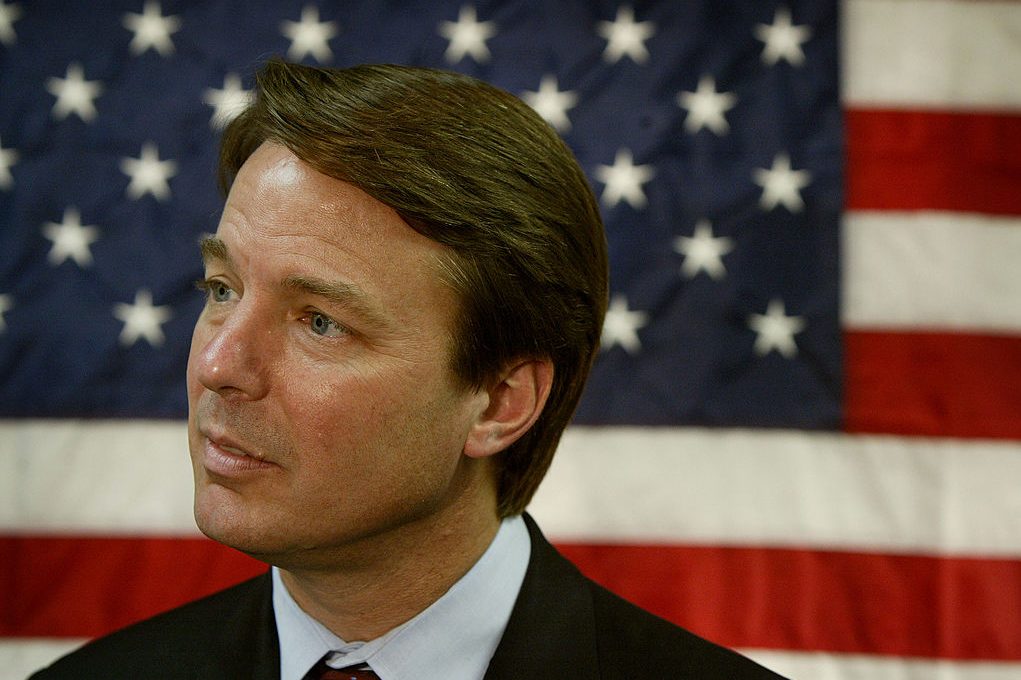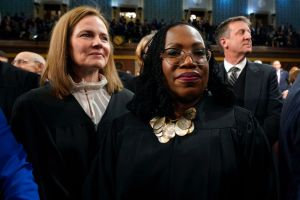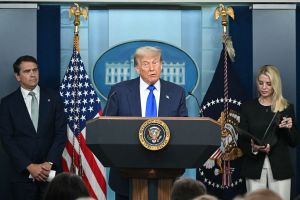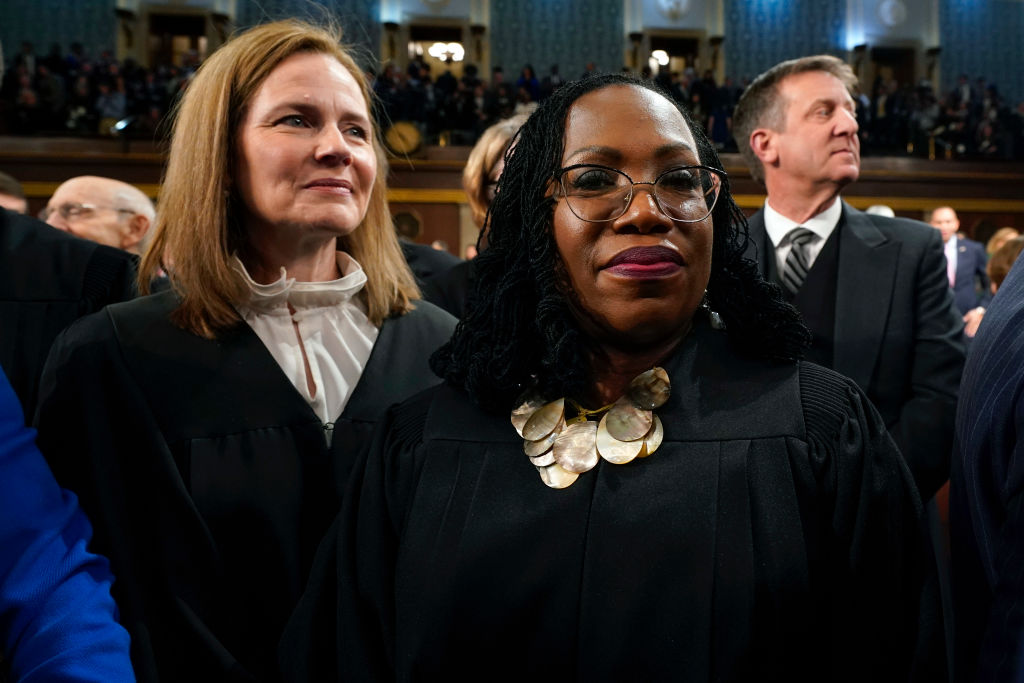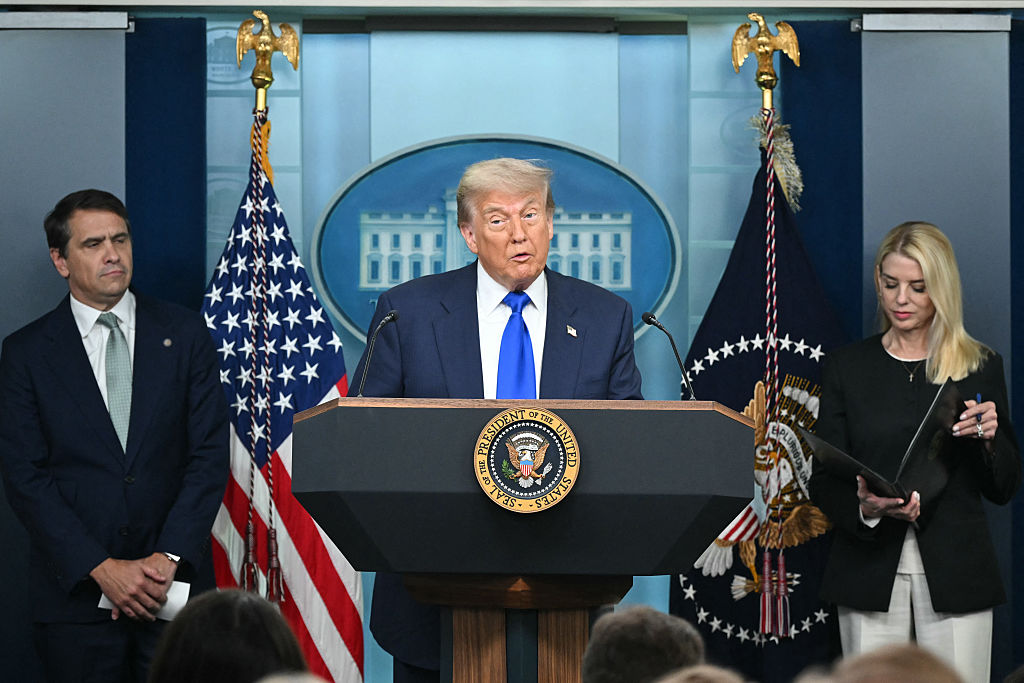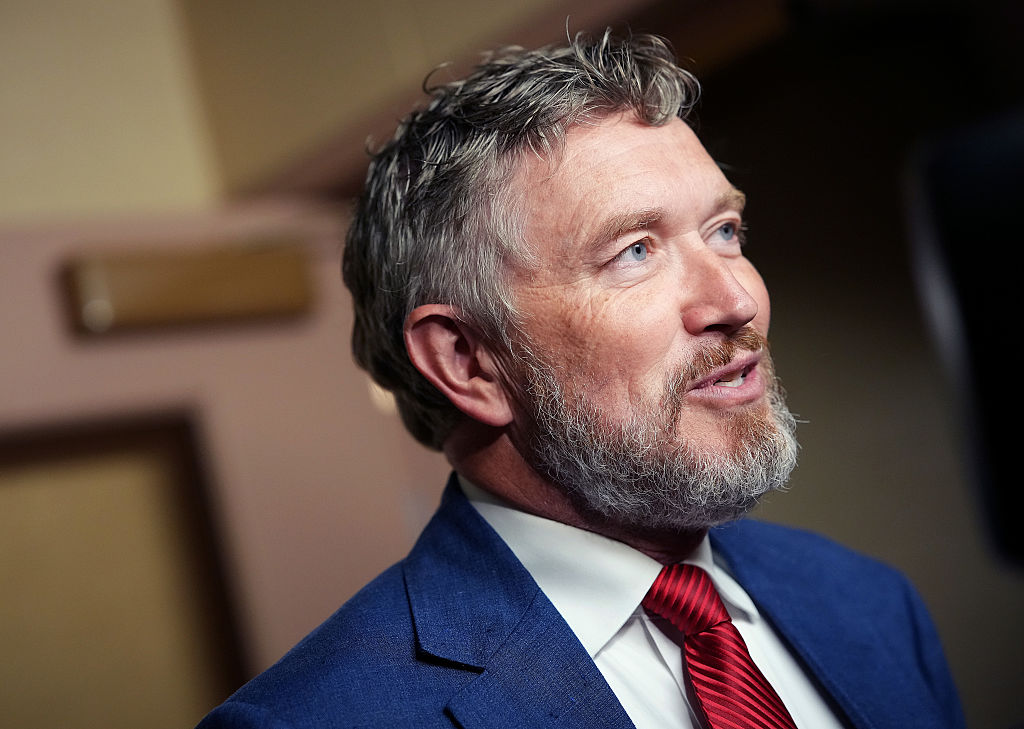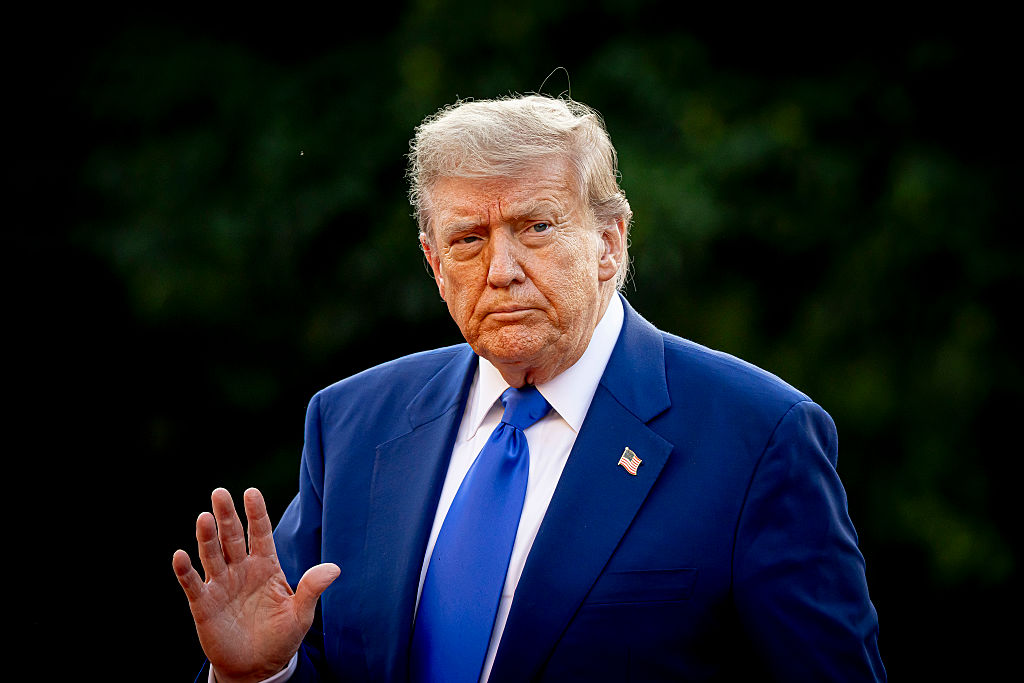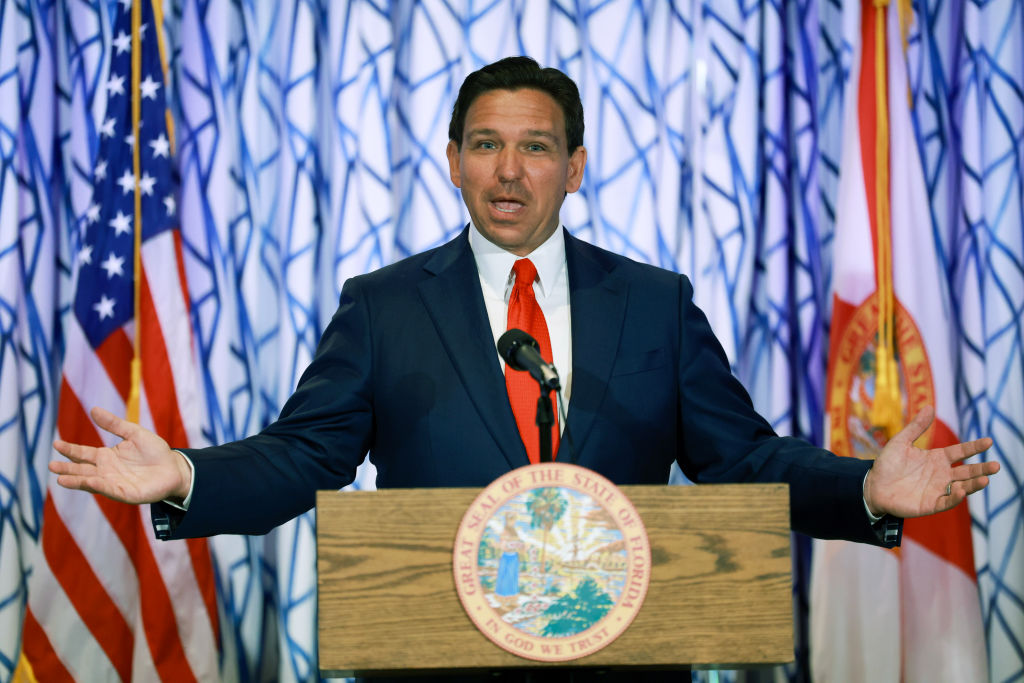Both legal lions and laymen can be excused for having doubts about the first indictment of a former president, as we toggle back and forth between the historical significance and the lurid facts involved. As Florida governor Ron DeSantis put it: “Look, I don’t know what goes into paying hush money to a porn star to secure silence over some type of alleged affair.”
Charges that Donald Trump falsified internal business records in covering up $130,000 in payments to “actress” Stormy Daniels aren’t what people will focus on. This case is headed for the cable TV shows long before it sees the inside of a courtroom.
The Trump indictment certainly adds an extra coating of sleaze to The Donald’s image. But the legal foundations of the case are reminiscent of the crash-and-burn prosecution of John Edwards, the former US senator and 2004 Democratic candidate for vice president, who was indicted in 2011 on six felony charges. Those charges included four counts of collecting illegal campaign contributions, one count of conspiracy and one count of making false statements.
The heart of the Edwards indictment was that he had solicited some $1 million from wealthy donors to hide his affair with Rielle Hunter, a videographer who had worked on his two campaigns for president.
After a year of drama, jurors in 2012 found Edwards not guilty on one count of illegal use of campaign funding. Mistrials were declared on all of the other counts against him when the jury couldn’t reach a verdict.
Today, even Michael Avenatti, the former lawyer for Stormy Daniels who won liberal acclaim for forcing her charges into the national limelight in 2018 when Trump was president, has strong doubts about the Bragg indictment.
Avenatti is serving eleven years in prison for extortion and fraud, but his tweets from jail shouldn’t be ignored. He thinks the unreliability of Manhattan DA Alvin Bragg’s star witness Michael Cohen, who once served as Trump’s personal lawyer and delivered the hush money, will be devastating.
“Rule: If you have to meet with a witness over twenty times to get to the alleged ‘facts’ and the ‘truth,’ RUN!!! Because you’ve got yourself a terrible witness who can’t be trusted and might just crater your career and your reputation,” Avenatti wrote. He’d earlier commented: “There are many critical facts and pieces of evidence (texts, emails, etc.) relating to the hush money scandal that have yet to see the light of day. And they will unfortunately be very damaging to the prosecution if Trump stands trial. At this point, you simply can’t build a case on the testimony of Cohen & Daniels.”
There are many parallels between the Trump indictment and the prosecution of John Edwards.
First, both cases were viewed skeptically because they were brought by prosecutors from the other party. In Edwards’s case, the Obama Justice Department allowed holdover GOP US Attorney George Holding to bring the case. Holding then resigned, ran for Congress in 2012 and was elected.
In the Trump case, Manhattan DA Alvin Bragg is known to be politically ambitious and has vaulted to the front of the pack of progressive prosecutors who have been elected with the help of mega-donor George Soros, who has spent liberally to fight against everything linked to Donald Trump.
Second, a decade ago, Edwards’s defense team argued that the $1 million in donations made to him by 101-year-old Gillette razors heiress Rachel “Bunny” Mellon and fellow trial lawyer Fred Baron were personal gifts from friends, not campaign contributions, and were to hide the affair from his cancer-stricken wife, not voters.
In Trump’s case, his attorney, Joe Tacopina, has been boning up on the Edwards legal playbook. “(Trump) made this (payment) with personal funds to prevent something coming out false but embarrassing to himself and his family’s young son,” Tacopina told ABC News this year.
Third, both cases involve star witnesses whose credibility was directly challenged. In Edwards’s case, it was his former aide Andrew Young who took the stand under a grant of immunity to testify against him. The defense cross-examination painted Young as an inconsistent witness. In Trump’s case, it will be Michael Cohen, who pleaded guilty to campaign finance violations and lying to Congress over his role in orchestrating the hush money payment to Daniels.
“Just like the cross-examination of Andrew Young was pivotal in the John Edwards case, it looks like no matter what charges are brought, the cross examinations of Michael Cohen and Stormy Daniels, if she testifies, will be pivotal,” Steven Friedland, a law professor at North Carolina’s Elon University and a former federal prosecutor who followed the Edwards case, told ABC News.
Jeff Welty, a government professor at the University of North Carolina, told the Raleigh News & Observer this month that prosecutors have to prove an intent to violate the law in campaign finance cases. In the Edwards case, jurors found the testimony of his intent murky. They couldn’t figure out what the former senator had personally directed to happen, what his aide Andrew Young had done on his behalf and what “Bunny” Mellon’s intentions in donating to Edwards were.
After the Edwards case concluded, juror Cindy Aquaro said she thought the defendant was guilty of something. But she said he was smart enough to hide it and the jurors couldn’t find proof: “We could not find the evidence.”
Fourth, the legal theory that Alvin Bragg is using to indict Trump on a campaign finance violation is far from well-established. Friedland, the former prosecutor, says it is today just as “novel” as when it was used unsuccessfully in the Edwards case.
Indeed, Mark Pomerantz, the prosecutor who oversaw the probe in Alvin Bragg’s office, resigned last year because Bragg abandoned an investigation into Trump’s business practices. He calls the indictment that Bragg is now pursuing a “zombie” case against Trump, surrounded by legal potholes.
Indeed, lots of Democrats are puzzled by Bragg’s decision to muddy the waters in his pursuit of Trump. “We were able to score points in the Bill Clinton impeachment by saying it was all about sex rather than lying,” one top Democratic consultant told me. “Now Bragg is stepping into a tar baby of a case that makes it look as if Trump’s enemies are pursuing him the way Clinton was hounded. Hysteria may be about to repeat itself.”
In the coming days, you’ll see legal experts opining that the case against Trump is more substantive and compelling than those against Clinton and Edwards. But the impression among many other legal experts who won’t be lunging in front of a TV camera is that Bragg is pursuing a rickety case that could create a horrible political precedent.
During his 2021 campaign to become prosecutor, Bragg boasted that he helped sue Trump more than 100 times while serving in the office of New York’s Attorney General. Bragg parlayed that line into a narrow three-point victory for the Democratic nomination in 2021.
Now, with the Trump indictment, Bragg has elevated himself to the status of America’s newest celebrity prosecutor. But painting an ugly portrait of Donald Trump isn’t the same thing as winning a legal case — either in a courtroom or in the court of public opinion.



